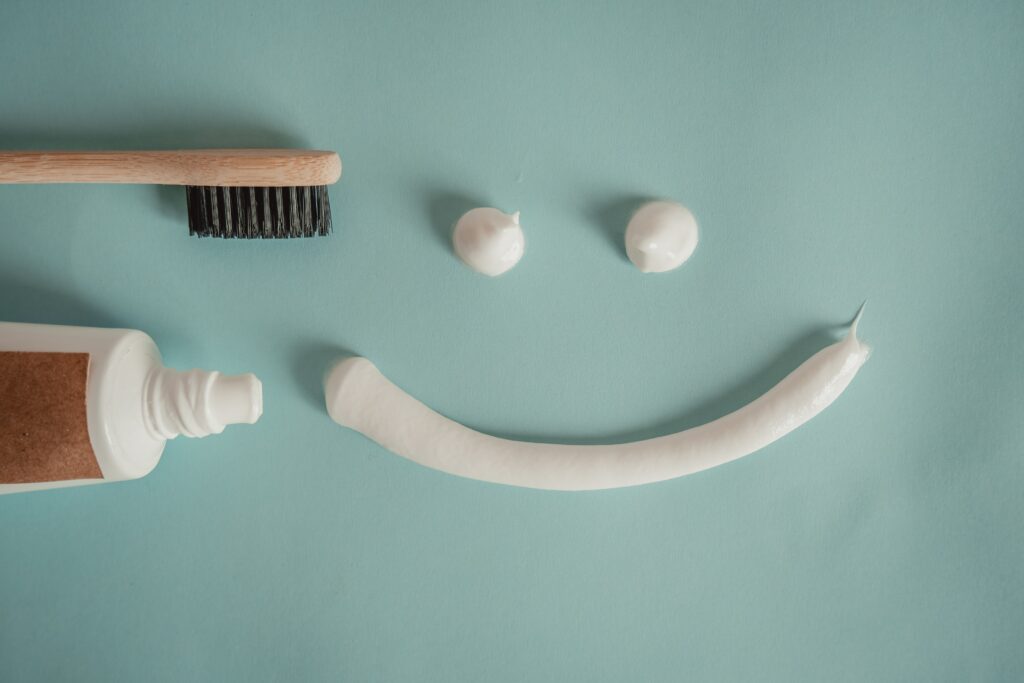If you’ve ever had a pesky pimple pop up right before an important event, chances are you’ve tried some unconventional methods to make it disappear. One common home remedy that has been circulating for years is using toothpaste as a spot treatment for acne. But does this method work?
In this blog post, we’ll explore the science behind acne and what causes it, the effectiveness of using toothpaste as a treatment. We will also list some ingredients in toothpaste that may help fight acne, and safety considerations to keep in mind. By the end of this post, you’ll have a better understanding if toothpaste actually helps with acne.

What Causes Acne?
Acne is a common skin condition that occurs when hair follicles become clogged with oil and dead skin cells. This can lead to the formation of pimples, blackheads, and whiteheads, as well as more severe types of acne such as cystic acne. Although acne is most commonly associated with teenagers going through puberty, it can affect people of all ages. Several factors can contribute to the development of zits, including hormonal changes, genetic predisposition, diet, and even certain medications.
While mild zits can usually be managed with over-the-counter treatments, more severe cases may require a visit to a dermatologist. It’s important to remember that everyone’s skin is different, and it may take time find the best combination of treatments.
Is Toothpaste an Effective Treatment for Acne?
The idea of using toothpaste as a spot treatment for acne has been around for decades. And many people have been swearing about its effectiveness. However, the truth behind whether or not toothpaste can help with acne is a bit more complicated. To understand its potential effectiveness, we need to look at the ingredients commonly found in toothpaste:
- Fluoride: Many toothpaste formulations contain fluoride, which has been shown to have antibacterial properties. This may help kill acne-causing bacteria on the skin’s surface.
- Triclosan: Another common toothpaste ingredient, triclosan is an antimicrobial agent that can help reduce inflammation and kill bacteria.
- Baking soda: Some toothpaste brands contain baking soda, which can help absorb excess oil and exfoliate dead skin cells.
While these ingredients may have some potential benefits for acne-prone skin, it’s important to note that toothpaste is not specifically formulated for treating zits. Using toothpaste it as a spot treatment may not be the most effective or safe option.
Common Toothpastes and Acne-fighting Ingredients
Not all toothpaste is created equal when it comes to potential acne-fighting ingredients. Here is a breakdown of some common toothpaste brands and their active ingredients:
Colgate Total
- Fluoride
- Triclosan
Sensodyne
- Fluoride
- Potassium nitrate
Crest Pro-Health
- Fluoride
- Stannous fluoride
As you can see, fluoride is a common ingredient in most toothpaste brands, but other acne-fighting ingredients like triclosan or baking soda may not be present in all formulations. This means that not all toothpaste will have the same potential benefits for acne-prone skin. It’s important to choose a toothpaste with the right ingredients if you’re hoping to see improvement in your blemishes.
Understanding How Toothpaste Works
Toothpaste is primarily designed to clean and protect your teeth, not to treat acne. The primary function of toothpaste is to remove plaque from your teeth, which is why it contains abrasive ingredients like silica, calcium carbonate, and baking soda. These abrasives are great for scrubbing away plaque, but they can also be harsh on your skin.
Another key function of toothpaste is to kill bacteria in your mouth. Toothpaste typically contains antimicrobial agents like fluoride or triclosan, which can offer some protection against acne bacteria. However, the concentration of these active ingredients in toothpaste is optimized for oral health, not for skin care, and using toothpaste as a spot treatment may fail to provide adequate concentration to be effective against those stubborn zits.
In short, while toothpaste contains some ingredients that can potentially help with zits, it is not specifically formulated for this purpose and may not be the most effective or safest option.

Considerations and Safety Tips
Before you grab your tube of toothpaste and start dabbing it on your breakouts, consider the following safety tips:
- Do a patch test: Toothpaste can be highly irritating to some individuals, so it’s important to do a patch test on a small area of skin to make sure you don’t have a negative reaction.
- Use sparingly: If you decide to use toothpaste as a spot treatment, use it sparingly and only on individual pimples, not on large areas of skin.
- Avoid toothpaste with whitening agents: Toothpaste containing peroxide or other whitening agents can be especially irritating to the skin and should be avoided.
It’s also essential to remember that toothpaste should never be used as a long-term solution or replacement for acne treatments. Proper cleansing, exfoliation, and use of acne-fighting products should be the foundation of your skincare routine.
Conclusion
While toothpaste contains some ingredients that have been shown to help reduce acne-causing bacteria and inflammation, it is not specifically formulated for treating acne and may not be the most effective or safest option. In some cases, using toothpaste as a spot treatment for stubborn zits can lead to skin irritation or worsening of your acne.
Instead of relying on toothpaste as a quick fix, focus on developing a consistent skincare routine that includes regular cleansing, exfoliating, and the use of acne-fighting products like benzoyl peroxide or salicylic acid. If your acne persists or worsens, consider consulting a dermatologist for professional advice and treatment options.
If you are enjoying our informative blogs, please like and share with your friends and family. Also be sure to checkout our products and contact us for samples.

